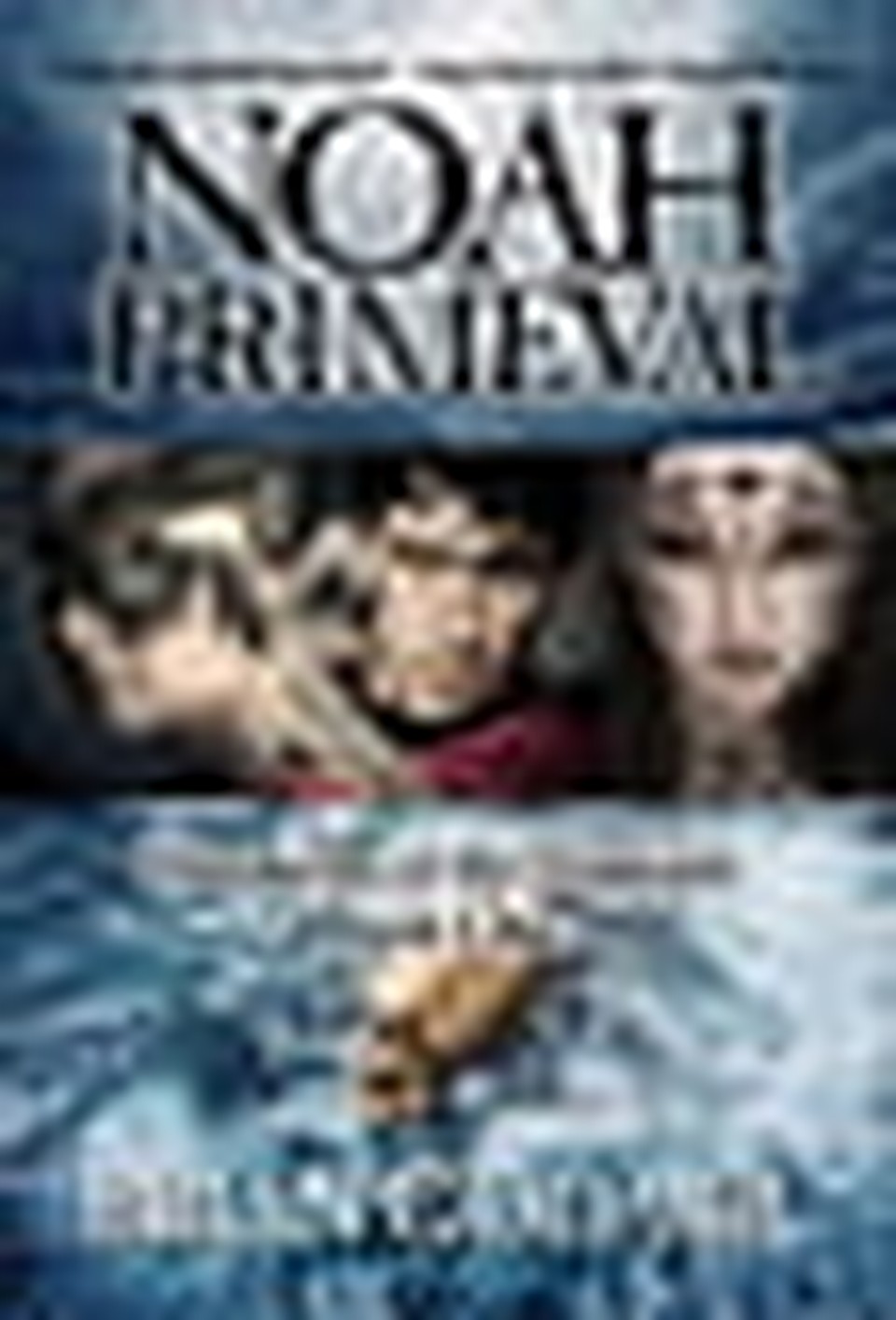Godawa’s Noah Primeval Captivates

Author: Brian Godawa
Title: Noah Primeval
Publisher: Embedded Pictures
Everything about acclaimed screenwriter Brian Godawa’s novel debut Noah Primeval—the graphic novel-style cover art, the title, and even the odd premise—would seem to scream “camp.” But Godawa’s take on the classic Genesis 6 story is none of those things. In fact, it’s a startlingly meaningful piece of mythic storytelling which performs a brilliant magic trick: pulling back the curtain on arguably one of the least accessible Bible stories and revealing its humanity and universal relevance, despite 6,000 years of distance.
Here’s the story: a more savage, less pastoral Noah and his two sons (Ham is born midway through the book) and wife—here given the name Emzara—are the leaders of a tribe of hunter/gatherer-types living in Mesopotamia in the years before the Flood. They are the last holdouts against the pagan tribes living in proximity to Erech, a Sumerian city ruled by the priest king Lugal-Anu and devoted to the worship of the gods Anu and Inanna. In Godawa’s rendering, these and the other gods of the time are given physical form, the result of the mating of the fallen angels with men. The gods are terrifying, serpentine figures, massively powerful and devoted to undermining the mission of Elohim (Godawa’s word for the Hebrew God) by promoting depravity and mating beasts with humans so none of Elohim’s creation remains on the earth.
That’s a lot of backstory, but Godawa plows through it efficiently, allowing us to absorb it rapidly, so we can focus on the exploits of Noah. The story’s main plot surrounds Noah’s mission to defeat the forces of the pagan gods. He’s aided by his grandfather Methuselah (yes, that Methuselah) and the archangel Uriel. Of course, there’s also that matter of the ark, which Noah has received instructions for building, but throughout most of the book runs from, since he can’t see how building a big “box,” as he calls it, would be part of Elohim’s plan for him. After some setbacks, including a trip to Sheol—Godawa’s term for hell—Noah finally comes around and sets himself to the task of building the ark. The novel’s climactic scene, which takes place as the skies are darkening in preparation for the mighty rain preceding the flood, is nail-biting stuff. Any 3-year old knows the outcome, what with the animals marching two by two and all, but the pacing of the showdown in Erech between Noah’s crew and the gods Anu and Inanna makes you wonder, just for a second, if they’ll reach the boat on time.
Sure, Noah is a little rough around the edges. As a screenwriter, Godawa’s prose is uneven, and his phrasing sometimes clunky. But as a piece of storytelling, Noah is first rate. There are elements of Steven Lawhead’s best work here: gritty, brutal, primitive, and full throttle. Credit Godawa for not just digging up a biblical hero, slapping him into some crazy scenario to make him look more glorious, and producing a warmed-over Sunday School lesson. In Noah, he goes through the painful—but crucial for high fantasy—process of world-building. In this case, it’s more of a combination of world-building and world-reconstructing. The 50+ pages of Appendices which detail Godawa’s painstaking research into ancient Sumeria are a testament to this.
Godawa certainly takes liberties with the book of Genesis, and he admits as much in his preface. But if one is willing to set aside literal biblical interpretation, the story to be found in the pages of this novel is masterfully and imaginatively rendered, as captivating as any high fantasy tale.
Originally published December 19, 2011.







